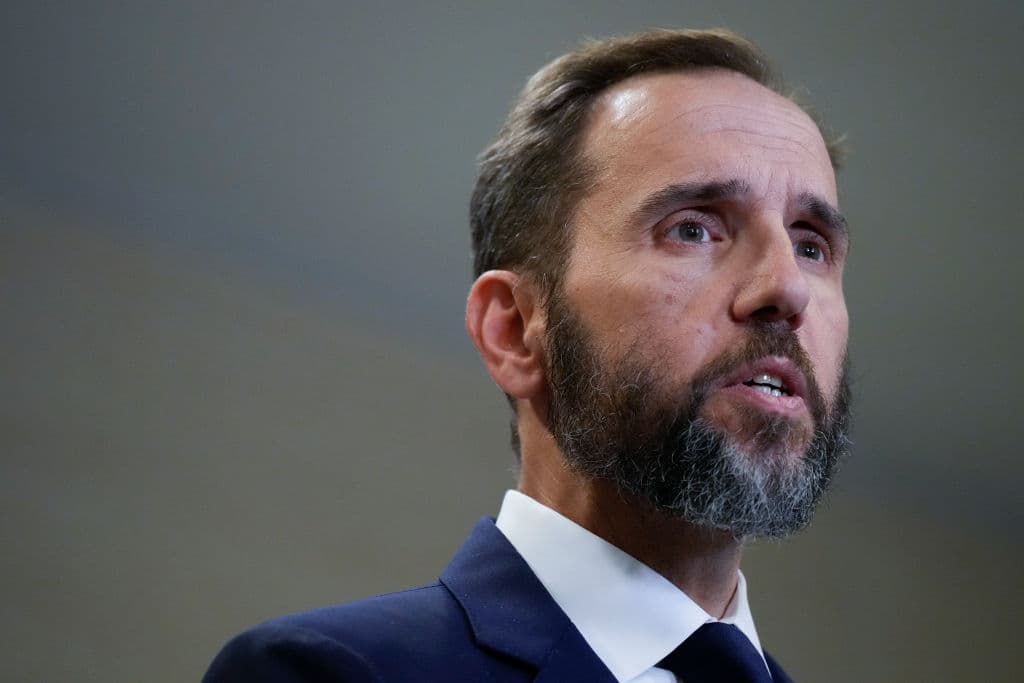Jack Smith’s January 6 Case Against Trump Is Resurgent With a Blockbuster Brief That Could Impact the Election — If It Is Ever Seen
It will be up to a District of Columbia judge, though, to determine whether voters see its contents before they go to the polls.

The filing by Special Counsel Jack Smith of a book-length immunity brief arguing for the viability of the January 6 case against President Trump signals that the election interference case could be roaring to life.
The brief hit the docket under seal, meaning that its contents will not be immediately known to the public, though Trump’s team will have access to the evidence adduced by Mr. Smith. The special counsel secured permission from Judge Tanya Chutkan to quadruple the customary page limit for such submissions.
Mr. Smith has indicated that he expects his opus to stretch to more than 200 pages and to include a “detailed factual proffer” as well as more than 30 pages of footnotes to an appendix of exhibits. Trump calls this document a “monstrosity” and a “false hit piece” and argues that its primary motivation is to steepen the 45th president’s odds of becoming the 47th.
The lengths to which Trump has gone to block the brief suggests that he reckons it could amount to a watershed in his prosecution. He urges Judge Chutkan to first turn to questions of discovery. He contends that the opportunity for Mr. Smith to gather the results of two years of his investigations is injurious to his due process rights. He calls it an “improper Special Counsel report masked as a superfluous filing seeking advisory opinions.”
The existence of this phase of the case is owed to the Supreme Court’s ruling in Trump v. United States that official presidential acts are presumptively immune. The justices overruled Judge Chutkan and the District of Columbia Appeals Circuit, saying both erroneously held that presidents are not entitled to any species of immunity.
The high court ruled that there is presidential immunity, in varying degrees, and sent the case back to Judge Chutkin to determine which presidential acts in Mr. Smith’s indictment were immune from prosecution. The justices desired that this inquiry be “close” and “fact specific.”
The special counsel quickly pivoted. He convened a new grand jury, and in a matter of weeks presented a new slimmed-down indictment that preserved the original four charges but excised nine pages that he reckoned the Supreme Court would consider transgressive of Trump’s “absolute” immunity for core presidential responsibilities. The cut material largely involved Trump’s interaction with the Department of Justice.
Mr. Smith decided to keep his relatively lengthy account of Trump’s efforts to pressure Vice President Pence into refusing to certify the election results, even though the Supreme Court ruled that these colloquies were conducted within the framework of official business and therefore were presumptively immune. The special counsel’s opus is likely to insist — at length — that he be allowed to enter that material into evidence.
Mr. Pence’s testimony was hard-earned. The 48th vice president — who was also the president of the Senate — argued that he was shielded from becoming a witness by the Speech or Debate Clause of the Constitution, which ordains that for speeches and debates in either house lawmakers “shall not be questioned in any other Place.” He was partially successful, which meant that Mr. Smith’s team was able to question him under oath.
Grand jury rules mandate secrecy, but allow for exceptions “preliminarily to or in connection with a judicial proceeding.” That means Mr. Smith could include such testimony in this filing, a prospect that is sure to displease Trump. Another member of the 45th president’s camarilla who could appear in this document is Chief of Staff Mark Meadows. Messrs. Meadows and Pence refused to cooperate with the House January 6 Committee, but were ordered to testify before Mr. Smith’s grand jury.
The decision on whether to unseal the brief will be Judge Chutkan’s. She has repeatedly ruled against Trump in this case, and in other prosecutions has doled out stiff sentences to defendants associated with the events of January 6, 2021. Trump is likely to appeal any decision to unseal its contents, possibly to the Supreme Court. One irony is that it is Mr. Smith, over concerns for witness safety, who has frequently requested redaction. Will he reverse that stance now?

